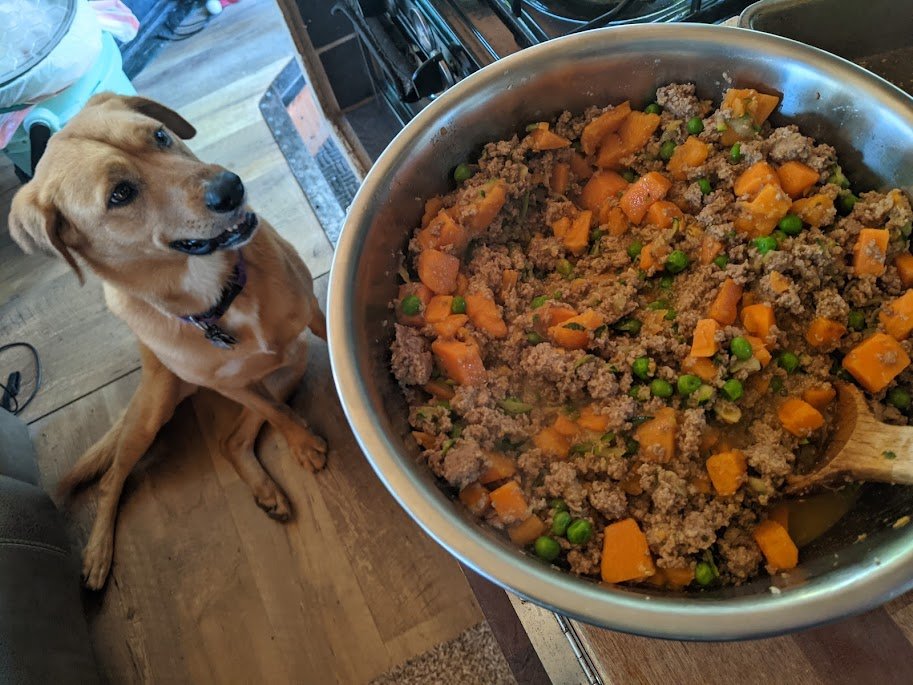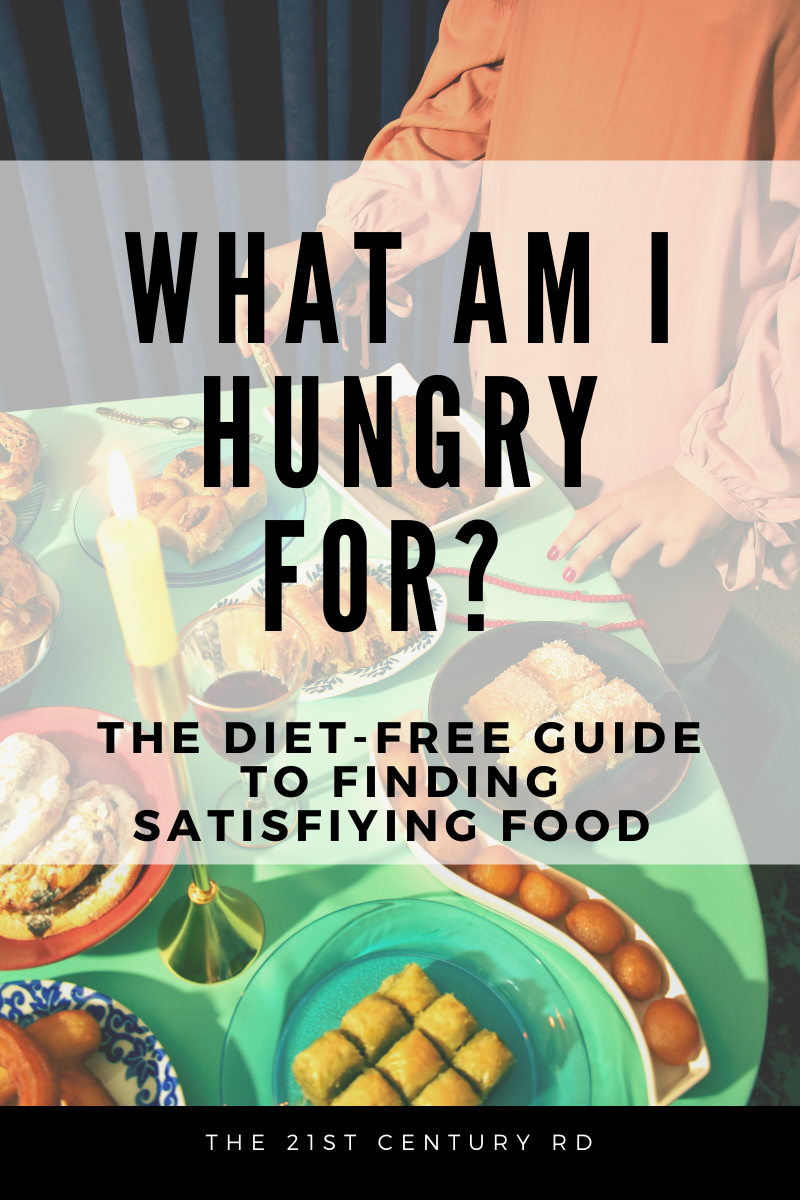Is it Dieting or Disordered Eating?
“are folks “disciplined dieters” or disordered eaters? Are they “watching their figure” or do they have body dysmorphia? Are they a “health nut” or suffering from orthorexia?”
A relationship with food (and/or exercise) doesn’t go from peaceful to disordered overnight. Oftentimes the signs are there without being noticed, thanks to diet culture. According to the CDC, as of 2016, 56.4% of women were attempting to lose weight within the past year. According to the book Body Image, between 40-60% of elementary school-aged girls are concerned about their weight.
When it is so normalized to be dissatisfied with our bodies, it is no wonder that people, including children, engage in disordered eating behaviors. The reality is, many disordered eating behaviors are totally normalized in our modern-day diet culture, making it blurry if folks are “disciplined dieters” or disordered eaters. Are they “watching their figure” or do they have body dysmorphia? Are they a “health nut” or suffering from orthorexia?
Think about it, the same behaviors that can used in the diagnosis of an Eating Disorder (ED) in a smaller bodied person can be recommended behaviors by medical professionals for people in larger bodies (think: skipping meals, ignoring hunger, avoiding food groups). Disordered behaviors are often applauded as being a demonstration of “willpower,” “determination,” or “strength.” The medical field and general public’s endorsement of these behaviors are one of the main reasons why diet culture and fatphobia are still rampant and normalized today.
I describe disordered eating and disordered movement behaviors as being on a spectrum; there are not clear categories of the levels of disordered behaviors. Once someone begins engaging in disordered behaviors, for some, it can be a slippery slope into additional harmful behaviors or a full-blown eating disorder. It is also worth mentioning that the motivation behind the behavior matters. As an example: If you are counting calories to fit in with your (crummy) friend group vs. counting calories because you are trying to lose weight to allow yourself to wear a bathing suit and go to the beach. The folks who engage in disordered eating behaviors, and have certain contributing factors, are more likely to fall down that slippery slope. These factors are things like: trauma history, low self-esteem, certain mental health conditions, family history, and certain personality traits like perfectionism.
Engaging in disordered behaviors doesn’t necessarily result in a diagnosis of an ED. In fact, many folks engaging in disordered eating habits will never be diagnosed with an ED- this can be due to a lack of screening, the limitations of the DSM-5 criteria for diagnosis (like having BMI criteria), because someone never seeks help, or because they never cross the threshold to an ED. It is important to note: YOU DO NOT NEED A DIAGNOSIS TO SEEK HELP IN IMPROVING YOUR RELATIONSHIP WITH FOOD OR MOVEMENT. You are worthy of help--no matter your body size or shape, no matter what friends, family, or even your PCP says.
Remember, diet culture wants you to believe these disordered behaviors are totally normal, even health promoting actions, when in reality they can be detrimental to your relationship with food, movement, and body image. Keep in mind that we can pursue wellness without focusing on eating as little as possible or shrinking our bodies. (Read this blog next to learn more about this)
Tracking Calories: this could look like using an app, writing them down, or even tracking in our minds. This behavior tends to be the “gateway behavior” into disordered eating. I can’t tell you how many of my clients at one time or another tracked calories. The overall idea being that by tracking you will eat less and/or be more accountable in your food decisions. There isn’t a clear distinction of when calorie tracking moves from a dieting to a disordered behavior. Here are examples of this behavior likely being disordered: only eating out at places that post the calorie information, ignoring hunger signals because you hit your limit, saving your calories for a special meal, not eating things you like because you don’t know the calorie content.
If you still aren’t convinced to stop calorie counting yet, know that calorie information posted on food is incredibly inaccurate (highly recommend the Maintenance Phase podcast episode on this topic). Counting calories doesn’t factor in what is being eaten or the nutrition content--just the amount of energy you are supposedly going to gain from eating the food. It doesn’t take into account how you feel, or how hungry or full you may be, instead it tries to make eating into an equation not an experience.
If you are physically counting and want to stop, you can delete the apps, and/or burn the journal you were writing in. You can try tracking other aspects of your eating experience like: you hunger/fullness/satisfaction levels, your mood before/during/after eating, or the timing of eating and how that affects your energy levels. This type of tracking helps you return into the body- providing much more accurate and individualized data then calorie counting.
When you have the thought “that is X calories” try to call out the thought. Maybe you say to yourself “I see you, diet thought” or “thanks so much for that useless information, diet culture!” Yes, this will feel awkward at first. The idea is to notice those automatic thoughts--so that you can challenge them and move on. The more you practice this you will be encouraging your mind to quiet the unhelpful thoughts and tune in to your body instead.
Healthifying everything: this might look like making every recipe as healthy as possible, squeezing in movement whenever possible, prioritizing health over satisfaction--always.
Let me paint a picture for you. This is the person who volunteers to host the girls’ night so that they can control the menu--nothing quite like cauliflower pizzas, skinny margaritas, and if they are feeling wild- black bean brownies. They always park their car far away from the store to get in extra steps. They go for a walk but turn it into a run. If they “slip up” by, say, eating something they deem bad or skipping a workout, they will make up for it tomorrow.
This is a sign of disorder that is under the guise of dedication. Orthorexia is not yet recognized as an official ED in the DSM-5, but an obsession with health can be damaging to our wellbeing. An important piece of health is pleasure--which is usually missing or way on the back-burner for someone with orthorexia. To challenge this type of thinking and behavior, try adding genuine fun and satisfaction to your to-do and meal plan. Challenge yourself by making the less healthy, more delicious recipe, engage in a less intensive form of movement, try prioritizing rest. These may be really difficult challenges--and all the more reason to work with a certified IE counselor.
Keeping clothes that no longer fit: sometimes it is keeping a dress that fit over a decade ago, squeezing into those jeans weekly--to make sure they can button, or keeping your smaller clothes at the front of the closet and the ones that actually fit your body in the back, maybe it is forcing yourself to wear clothes that are tight and uncomfortable rather than buying things that fit.
These types of actions aren’t inspirational. They are reinforcing the (false) message that your body is not good enough, sexy enough, small enough. These types of behaviors more than likely make you feel pretty crummy. If you aren’t ready to box up these clothes to bring them to Goodwill, then maybe store them in the attic or at least the back of the closet. If you have the means to buy some staple pieces that fit your here-and-now body, DO IT. Your body deserves comfort; wearing things that are too tight is likely to make you feel uncomfortable and keep you focused on your body in a negative way.
Having rules around food: There could be a lot on this list; here are some of the regulars that I hear--never drinking your calories, eating only during certain hours, cheat days, avoiding foods or food groups (for non-medical/ethical reasons), weighing/measuring foods, chewing foods a specific number of times. One rule can quickly become 2 or 3, eating can become rigid, stressful, and often lead to a restrict--binge cycle. This cycle is where we inevitably “slip up” with our self-imposed food rules, probably eat a lot of the “no” foods, creating an out of control like feeling, which then serves as proof that you need the food rules. In reality, this out-of -control feeling is because of the food rules and restriction. This is how folks can find themselves in a yo-yo pattern with dieting.
To combat these disordered food rules--end the food fight! Here are some tough questions you can ask yourself: Would I want a loved one to be engaging in these types of rules? How am I putting my life on hold to lose weight or be as healthy as possible? Do I want to continue these behaviors for the rest of my life?
My hope is after reading this blog you see just how blurry the lines can be between dieting behaviors and disordered behaviors. YOU deserve to have a peaceful relationship with food-- right here, right now. Please do not wait to get help. Moving away from disordered eating behaviors is hard work, especially while living in a world that reveres thinness, dieting, and “willpower.” This is why Intuitive Eating Registered Dietitians do this work- we want to help you have a more joyful relationship with food. I’ve heard this from other non-diet dietitians and want to echo them--we’d be happy to work ourselves out of our jobs! In a world without diet culture, I think I’d make my own dog food company. Buster’s Bites? A Dietitian and her Doggos? Ellie’s Eats? Taking suggestions just in case…
This was my very first batch of homemade dog food. Ellie always knows when I am making her food and will not leave my side justtttt in case I drop something! (She’s pretty smart because I am clumsy and messy in the kitchen!)




